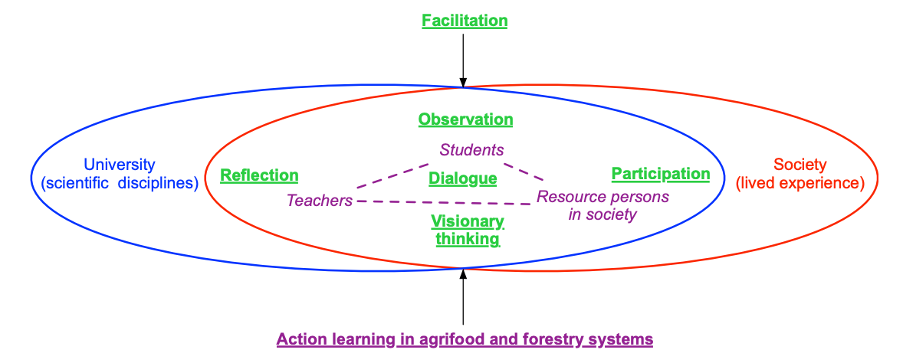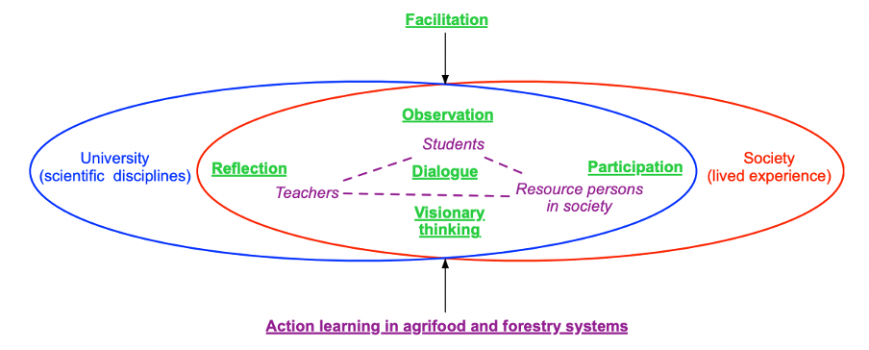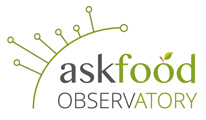The aim of the NEXTFOOD Toolbox is to support teaching practitioners in implementing education in line with the NEXTFOOD approach, which is a transformative and participatory learning model based on collaborative transdisciplinary and action-oriented learning.
The NEXTFOOD approach puts teachers, advisors, students and stakeholders into a real environment to solve a specific problem together. The learning happens by facilitated observation, participation, dialogue, visionary thinking and reflection.

The NEXTFOOD Toolbox will support teachers at any level of the education system (high school, vocational training & university), as well as extension specialists devoted to experiential learning approaches. The tools you find here are intended for courses and programs in the area of sustainable agrifood- and forestry systems, but the methods and models are not content-specific and can be adapted to a variety of educational settings.
Explore the content by clicking various areas of the model (you need to login or create a free account). By clicking on the boldfaced, underlined concepts in the model, you will find relevant material for implementing the approach and training the competences. The material includes theoretical background, examples, instructions, teaching/facilitating materials, presentations, and other resources to support your action learning endeavor. When clicking on a concept, you will come to a page which gives an introduction to the concept and why it is essential in the Nextfood approach.
Read more at
D3.1 Educational approaches (Lieblein, Breland et al. 2019) and
D3.2 A toolbox for teaching practitioners (Nicolaysen, Lieblein et al. 2020)

